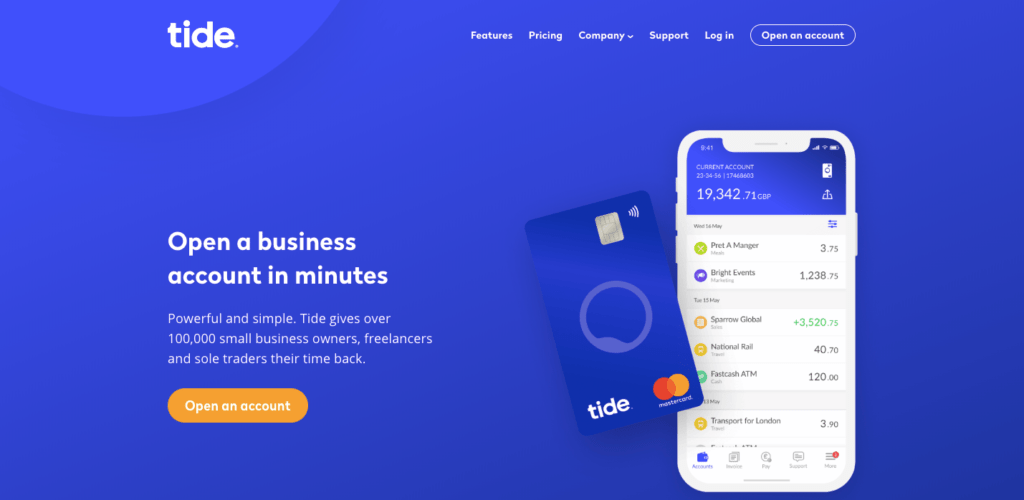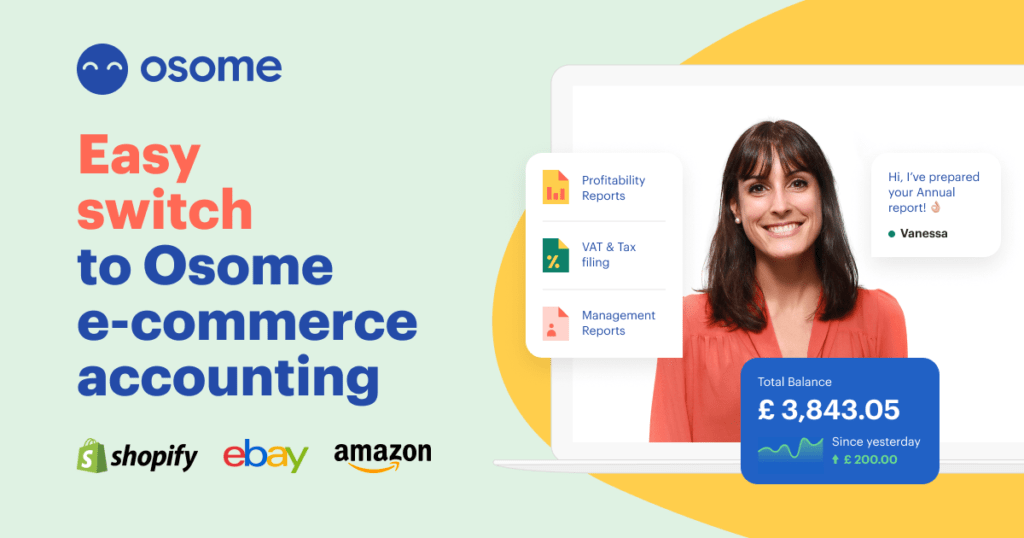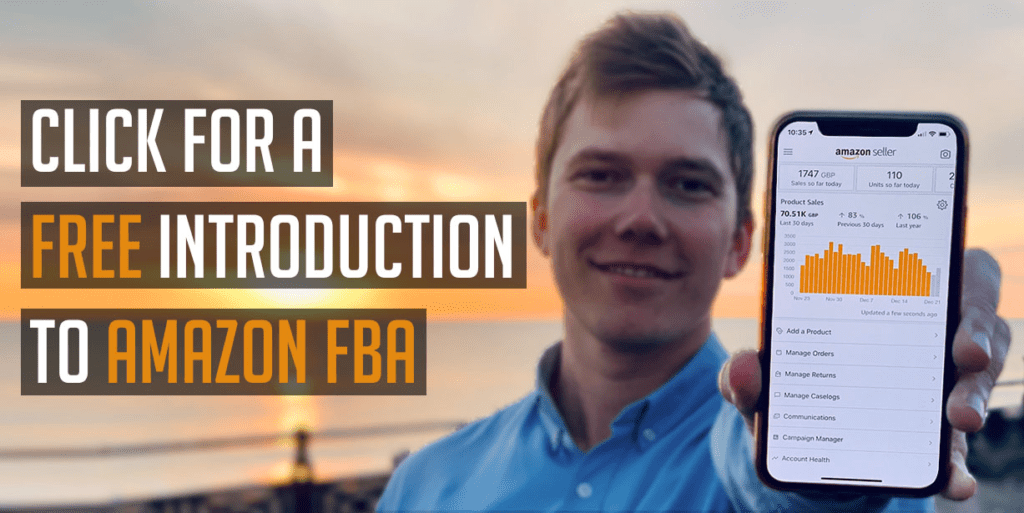
When Is The Right Time To Hire An Amazon FBA Accountant?
If you’re a new or existing Amazon FBA business owner, you’re probably familiar with the main benefits of hiring an accountant – they can help you set up a company, properly calculate your finances and the right amount of tax that you should be paying, and deal with all of your business’ boring admin and paperwork whilst you focus on growing your profits.
Whilst you might understand how an Amazon FBA accountant is able to provide you and your business with value, you might not appreciate when is the right time to go out and hire somebody to help. Should you do it on the first day that you create your business, or push it out as far as possible so that you can save on costs… well the answer isn’t quite straightforward because every business or Amazon seller is different, but with that said, there are some telling signs that it’s time to hire Amazon accounting services as soon as possible – signs that shouldn’t be ignored – otherwise they could land you and your business in trouble.
1. When You Don’t Know Which Amazon FBA Business Type To Choose
One of the earliest signs that it’s time to hire an Amazon accountant, is if you’re unsure as to whether you should run and manage your ecommerce business as a limited company or as a sole trader. Although there are hundreds videos that explain the differences between a company and a sole trader, and which is arguably the more profitable and better of the two, the truth is that the right option for you is going largely going to be dependent on your own personal circumstances, which a random video on Youtube isn’t going to know when giving out advice.
If, after doing your own research into sole traders and limited companies, you’re feeling lost and overwhelmed, it may be time to turn to the one person that can definitely help advise on which option is better for you and even set everything up for you – an accountant. Choosing your business type and then setting is up properly is a part of the process that’s important to get right when making your Amazon seller account, so if you don’t feel confident in this area after doing some reading on line – it’s probably time to hire an accountant.

2. If You Don’t Understand Your Amazon FBA Accounting Requirements
After you’ve set up your Amazon FBA business, you’re going to have to meet a number of legal requirements moving forwards, some of which aren’t that easy to remember and could result in a penalty if not met on time. As an ecommerce business owner, you’re expected to regularly keep on top of tasks and processes such as recording all cash flow, notifying HMRC and Companies House if there are any changes to directors and shareholders circumstances, filing annual returns, amongst many others.
Whilst there are sites out there that will tell you exactly what forms you need to file and when, if your Amazon business is quickly growing, you have to question whether keeping on top of these and filling them out yourself is really worth the losing your time and focus in order to save a few pennies on an accountant.
In itself, filing annual statements and keeping on top of your own income and expenses aren’t particularly difficult tasks once you know what you’re doing, but they do take time to do properly. So, if you get to a point where you feel that keeping on top of your company’s filing requirements is distracting you and stopping you from being able to fully focus on your customers and other responsibilities as an Amazon seller, it’s worth hiring an accountant to get them to take that workload and many others off your hands to make your life easier – and not just for the time saved but also the assurance that what is being filed is actually correct and free from errors.
3. If You Need Help Getting A Business Bank Account
As a new business owner, one of the first tasks that you’ll be doing is signing up for a business bank account so that you can deposit all of the earnings that you’ll be making. These days, there’s no shortage of business bank accounts for you to choose from, but what there is shortage of, is a business bank application form that doesn’t want to dive into the detail of your business, questioning what it does in a lot of detail, and in some cases even asking for a letter from your accountant or a business plan to prove that you’re a credible business.
Although a letter from your Amazon accountant or a business plan are requirements that aren’t frequently asked for by more modern banks such as Tide, if you do have a bank in mind that you’d like to open an account with, and they ask for a letter from an accountant or a business plan, you’ll probably want to speak with a firm providing Amazon accounting services in order to avoid any delays. Although It is possible to put together a business plan yourself, it’s something that might take up quite a lot of your time and if you do it wrong and the application is rejected, you’ll be back to square 1.

If you ever want to borrow money from the bank in order to grow your ecommerce business or sell it, you’ll have to provide a business plan anyway, so if you are asked for one when registering for an account, it’s worth getting a proper one done which you can update and re-use later on as your online business grows and looks for capital to grow.
4. When It’s Time To File Your Accounts
Regardless of whether you choose to create your business as a sole trader or a limited company, every year you’re required to submit your annual accounts which details your cash flow, profit and the amount of tax that you’re liable to pay. Unless you already have a background in finance and a good understanding of accounting, preparing and then filing your financial statements and tax returns is absolutely something that you should not be doing yourself – mainly because of the fact that a simple mistake or misunderstanding of the rules could result in you paying way more tax than if a professional did the calculation for you.
As a company, your annual accounts need to be submitted within 9 months of your business’ year end, which is usually determined to be 12 months after you first created your business. So, if you set up a company on 1st January, then your year end is going to be 12 months later on 31st December, and your financial statements will need to be filed every 9 months after this date – so by September of the following year.

What that means, is that if you’re happy to create your business yourself and keep on top of all of your own record keeping, accounting and filing, then technically speaking you don’t need to hire accountancy services until your first filing deadline starts to come up – which is going to be around 20 months after you first create your company.
As a sole trader, regardless of when you start your business, you’ll be required to file a return by 31st January each year, which is 9 months after the end of the April tax year.
So, if you’re comfortable doing your company’s admin and smaller filing requirements yourself, then, provided that you don’t pass the VAT threshold, technically you don’t need to hire an accountant until 9 months after your year end, which if you’re a company, is going to be up to 21 months away.
Now, that is the latest point at which you can hire an Amazon accountant, and that could be brought forward if your business generates more than £85,000 in revenues in a 12 month period, which is the VAT threshold for businesses.
5. When You Pass The VAT Threshold
If your business passes the £85,000 VAT threshold, then you’ll have just 30 days to get accountancy services and register for VAT; otherwise, you’ll be faced with a fine. Registering for VAT and then filing quarterly VAT returns is not something that I would recommend doing yourself, so if you haven’t hired an accountant yet and you are getting close to the VAT threshold, I’d advise you to speak with an accountant ASAP.
My View: When Should Amazon Sellers Hire An Amazon FBA Accountant?
Accountants undoubtedly provide you and your business with a tonne of benefits and savings, particularly when it comes to paying taxes and avoiding fines and penalties.
Whilst there isn’t an immediate legal need to hire an accountant as soon as you create a business, regardless of how confident you are in record keeping and business creation, it’s still worth introducing your team and yourself to an accountant early on so that you or your team can narrow down who you’d like to hire when the time comes, and also discuss pricing.
Some accountants charge the same for supporting your business regardless of whether you hire them on day 1 or the day before your financial accounts are due, which is why I’d advise you to speak with one and make yourself aware of hidden costs and them of your circumstances as clients as soon as possible.
An accountancy firm that I recommend you get in touch with regardless of what stage you’re at, is Osome, who are a digital accountancy firm that are currently offering £100 off all of their packages and also providing a free strategy calls which you can use to get some free initial advice on whether you should go down the limited company or sole trader route.

If you do decide to hold off on contacting an accountant until the last possible minute – so the earlier of 21 months after you incorporate or when you pass £85,000 in revenues – make sure that you record all of your income and expenses, and you remember to open any letters that come through the post addressed to your company.
If you’re interested in finding ways to pay less tax in the UK while staying within the legal boundaries, you might want to check out my post on practical tips for reducing your tax payments.
If you want to learn how you can create an Amazon FBA business yourself, then check out my free training where I’ll teach you everything you need to launch your first product on Amazon and scale to $5,000+ in monthly profit.
Or if you’re ready to begin your journey and want to start with the best chances of success, apply to become a member of HonestFBA’s training programme where you’ll receive guidance & support from our team of 7-figure Amazon FBA seller experts whenever you need it.





